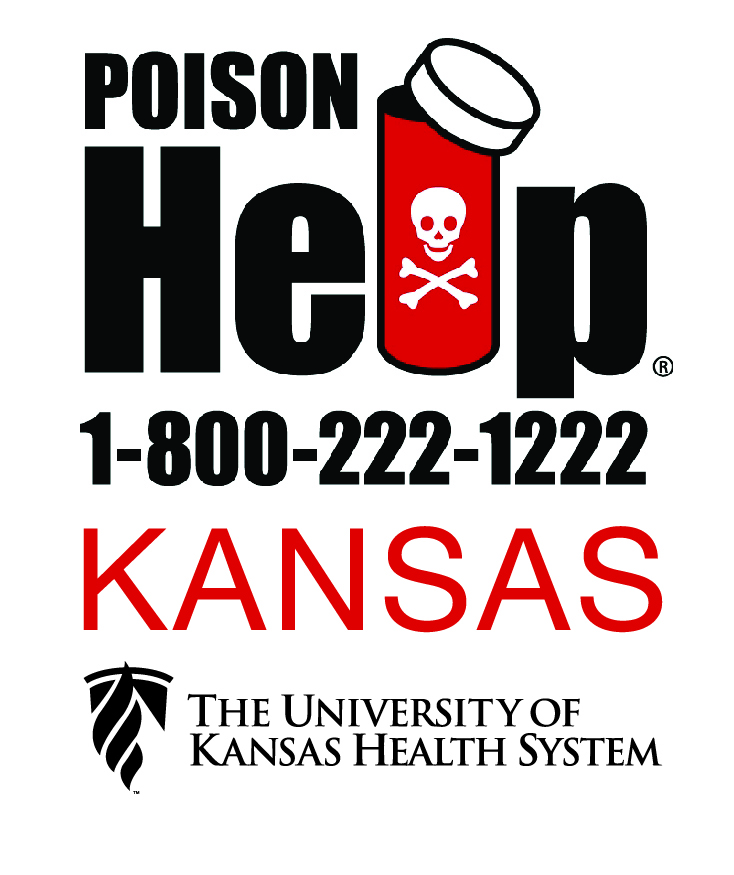KDHE
TOPEKA – Did you know that last year nearly 60 percent of the human exposures reported to the Kansas Poison Control Center involved medications or pharmaceuticals? Most over-the-counter and prescription medicines can be helpful when taken as directed. However, when not taken properly, medicines can be harmful, and in some cases deadly. Medication errors can occur at any age, which is why it’s important for everyone to be aware of proper medicine safety.
“Any medication, prescription or over-the-counter, can be poisonous when used in the wrong way, by the wrong person, or in the wrong amount,” said Cherie Sage from Safe Kids Kansas. “Be sure to read labels carefully and follow directions. If you have questions, contact your doctor, pharmacist, or call the Poison Help line for information.”
National Poison Prevention Week is March 18 – 24, 2018.
By taking a few precautions, you can help keep you and your loved ones safe from poison emergencies.
Children – As we know, young children are curious and act fast. Therefore, it’s vital to use and store medicine around children properly:
- Always store medicines up, away, and out of sight of children.
- Read each medicine’s label and always give “as directed” (use the dosing device that comes with the medicine) or as instructed by a physician or pharmacist.
Adolescents – Youth begin to self-medicate around 11 years old (5th and 6th grade), which is why it’s important that parents, teachers, and guardians discuss the safe use and storage of medicines with tweens:
- Learn to read, understand, and follow the Drug Facts label.
- Never share your medicine with someone else or use someone else’s medicine.
- Measure every dose carefully, and always use the dosing device that comes with the medicine.
- Be sure to get permission and guidance from a parent or trusted adult before taking medicines.
- Parents and caregivers can find out how to start the conversation about over-the-counter medicine safety here: https://www.scholastic.com/otcmedsafety/
Adults – Between taking care of their children and parents, many adults forget about the importance of their own medicine safety. However, a few simple steps can help prevent poisonings and overdoses:
- Be prepared for any poison emergency by programming the Poison Help line into your phone, 1-800-222-1222, and placing it somewhere visible in your home.
- Properly getting rid of medicine that you don’t need is especially important if you have children or pets in your home.
- Keep medicines in their original containers and properly labeled. If you have any questions about a medicine or ingredient, call your local poison center.
Older Adults – About one-third of adults 57 years and older use at least 5 different prescription medicines, and most older adults taking prescription medicines are also using over-the-counter medicines, dietary supplements, or both. Due to the increase in medicines, older adults are twice as likely as others to come to emergency departments for adverse drug events and nearly seven times more likely to be hospitalized after an emergency. As more and more patients receive care from more than one provider and even more than one pharmacy to meet their pharmaceutical needs, the patient remains the common denominator. Here’s how older adults can protect themselves from accidental poisonings and overdoses:
- Discuss ALL medications with your doctors and/or pharmacists, including prescription and over-the-counter medicines, and vitamins and supplements.
- Read and follow the directions for each of your medicines and take them exactly as directed.
- Keep a list of ALL medications that you are taking, including prescription and over-the-counter medicines, and vitamins and supplements, and bring the list whenever you go to doctor or drug store.
- Keep your medicines in child-resistant containers and up, away, and out of sight of children.
- If you need glasses, always use them when taking medications. Never take medications in the dark.
- If you experience adverse effects from a medicine or have any questions or concerns about a medicine, call your local poison center immediately at 1-800-222-1222.
For more medicine safety tips, visit safekids.org
Download tips on how to read a drug facts label at https://www.knowyourotcs.org/how-to-read/
About the Kansas Poison Control Center
The Poison Control Center at The University of Kansas Health System is a 24-hour health care information resource serving the entire state of Kansas. The Mission of the Kansas Poison Control Center is to provide immediate comprehensive patient treatment information on toxic exposures, while trying to reduce future poisonings through educational outreach. Be prepared for a poisoning emergency and program the Poison Help line into your mobile telephone today – 1 (800) 222-1222.

